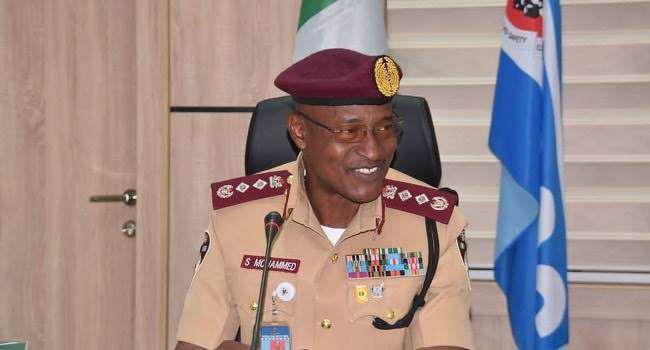Nation
FRSC marshal: Only armed operatives can enforce traffic laws on Nigerian highways

The Corps Marshal of the Federal Road Safety Corps (FRSC), Shehu Mohammed, has said arming operatives may be the only way to enforce traffic laws effectively on Nigeria’s highways.
Speaking on Arise News on Thursday, Mohammed described the dangers and limitations his personnel face when confronting heavy-duty vehicles and reckless drivers.
“How do you stop a trailer or a tanker on the road? A truck carrying 100 passengers with animals on top, and you only have four personnel on patrol, how do you do that?” he asked.
He argued that without adequate “power of cohesion,” enforcement becomes almost impossible. “If you don’t have the power to enforce anything, there’s no way you can achieve that enforcement,” he said.
On allegations of bribery and extortion among FRSC officials, the marshal admitted the problem exists but insisted the Corps had been tougher than most agencies in punishing offenders. “We have more record of termination and dismissal of our personnel because of bribe and corruption,” he said, noting that a standing operating procedure is in place to check misconduct.
Mohammed also addressed public complaints over driver’s licence charges, clarifying that fees remain ₦15,000 for three years and ₦21,000 for five years. He apologised for delays in processing and assured Nigerians that an enhanced licence system with more efficient service would roll out by mid-October.
The debate over arming FRSC personnel has gained traction in recent years. In October 2024, the House of Representatives passed a bill at second reading to establish an Armed Road Safety Corps, an FRSC squad with powers to carry weapons and enforce traffic laws more robustly.
Supporters of the idea say an armed unit is needed to check rising cases of reckless driving, road massacres, and resistance to enforcement on highways. Critics, however, warn of potential abuse, intimidation, and the danger of further militarising road safety operations.



